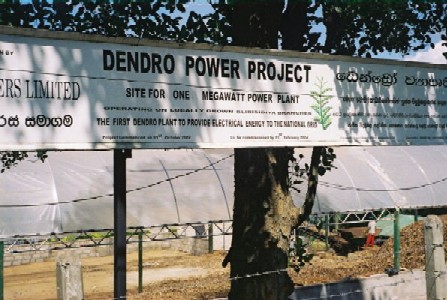The development of a Biomass Energy Toolbox has been a key output from an 18-month study carried out for the EU's Asia Pro Eco Programme. The Toolbox contains a set of technical papers and information on the use of biomass for heat and electricity production. A CD version of the Toolbox has been produced and distributed. It is also available on the NRI website and can be viewed here. The focus of the study was on Sri Lanka and India, and the Toolbox is primarily intended for use in South Asia, but the technologies and approaches have considerable potential for wider application, especially in Africa and Latin America.
In response to the rising financial and environmental costs of fossil fuels, especially due to the global effects of carbon dioxide levels, increased attention is being given to the use of planted trees and agricultural waste as key fuels for both household and industrial use. The advantages of such fuels are that they are carbon-neutral and can be harvested close to their point of use. In particular, short-rotation coppicing of planted leguminous tree species – with frequent harvesting of new growth – allows farmers in the tropics to realize incomes in a short period, and also provides benefits through improved soil fertility. These tree-legumes have already been widely promoted as agroforestry species throughout the tropics, so this approach could easily be adopted in other tropical regions.

The 1 MW dendro thermal power plant at Walapane, Sri Lanka has demonstrated that it is feasible to produce electricity from locally-grown wood chips.
© University of Greenwich
The Toolbox describes technologies that enable the sustainable production of electricity, including decentralized energy that can be generated close to where it is needed. These technologies provide a means for remote rural communities to produce off-grid power to meet the needs of households and small enterprises. The Toolbox also explores the policy aspects of using such carbon-neutral fuels in relation to the value and importance to developing countries of the Kyoto Protocol's Clean Development Mechanism.
The project has been led by NRI working with the Italian partner Comitato Termotecnico Italiano (CTI), the Bio-Energy Association of Sri Lanka (BEASL) and The Energy and Resources Institute of India (TERI).
For more information, contact Claire Coote (

